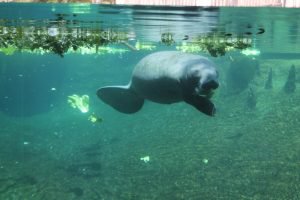The Purpose of Ecotourism
January 19, 2022

Most tourism in natural areas today does not fall under the category of ecotourism and is not, therefore, sustainable. Ecotourism is set apart by its emphasis on conservation, education, traveler responsibility and active community participation.
With the many advances in transportation and information technology, even the most remote places on our earth are within reach of the traveler. In fact, tourism is now the world’s largest industry, with nature tourism representing the fastest growing segment. People express a desire to experience nature and the world, but should make every attempt to do so in a way that does not negatively impact the natural environment.
The World Conservation Union (IUCN) defines ecotourism as, “Environmentally responsible travel to natural areas, in order to enjoy and appreciate nature (and accompanying cultural features, both past and present) that promote conservation, have a low visitor impact and provide for beneficially active socio-economic involvement of local peoples.”
Ecotourism generally possesses the following characteristics:
- Conscientious, low-impact visitor behavior
- Sensitivity towards, and appreciation of, local cultures and biodiversity
- Support for local conservation efforts
- Sustainable benefits to local communities
- Local participation in decision-making
- Educational components for both the traveler and local communities
Increased tourism to sensitive natural areas without appropriate planning and management can threaten the integrity of ecosystems and local cultures. An increase of visitors to sensitive natural areas can lead to substantial environmental degradation. Local communities and indigenous cultures can also be harmed by a large influx of visitors. Ecotourism offers an opportunity for an increase in education and activism among travelers, making them more effective supporters of conservation.
Benefits of Ecotourism
November 17, 2021

Ecotourism encourages tourism in stunning natural areas, can create jobs and income without destroying or harming natural or cultural assets that the visitors have arrived to explore and, like no other industry, ecotourism gives natural unspoiled areas an economic value. These efforts all go hand in hand with actively creating benefits for nature conservation and focusing on reducing environmental impacts.
Ecotourism experiences also tend to be cutting edge with regard to creativity within the tourism industry, and can be readily marketed to an ever increasing number of people who wish to ensure that their vacations create positive benefits, both for the environment and local communities, while providing them with education and fun.
Naples on the west coast of Florida ranks high amongst the best places to visit in the sunshine state and manatee eco tours are high on the list things that should not be missed as far as Florida tourist attractions. Manatee tours offered by Manatee Eco-Tours include a boat tour with a close-up view of Florida wildlife. Whether you are a wildlife photography enthusiast or simply a tourist looking for a wonderful adventure tour, Manatee Eco-Tours will exceed your expectations.
Known for its pristine white sand beaches, Naples is paradise for natural wildlife and home to some of the most diverse and unique ecosystems in the nation. Aside from alligators, a wide variety of birds and large fish, and other kinds of aquatic life that are common to Naples, manatees are a Florida treasure.
Also known as sea cows, these gentle giants are typically found in shallow, slow-moving rivers, bays, estuaries and coastal water ecosystems along the southeastern United States. They can live in fresh, brackish, or salt water. Manatees prefer waters that are approximately three to seven feet in depth, however, along the coast, manatees tend to travel in waters that are about 10 – 16 feet in depth. The warm waters around Naples provide manatees with safe living and breeding areas, the warm water they prefer, and a steady and easy to access food supply.
What are Eco-Tours?
October 4, 2021

Our team at Manatee Eco-Tours out of Naples, Florida works diligently to create and offer well-planned, interactive learning experiences that introduce small groups of travelers to manatees and their environment, while supporting conservation efforts and encouraging an overall respect for the environment. We are a local, year-round family run operation devoted to sharing our knowledge of manatees and other wildlife that share their environment.
Some fun facts we share regarding manatees include:
- Manatees feed on more than 60 species of plants, which include turtle grass, manatee grass, shoal grass, and mangrove leaves.
- On average, one manatee is born to a mama manatee every two to five years. Also, it is very rare for twin manatees to be born, but it does occur.
- With regard to the number of manatees currently in Florida, for the third straight year, spotters have counted more than 6,000 manatees navigating through Florida’s beautiful and warm waters.
- There are three species of manatees, including the Amazonian manatee, the West Indian manatee and the West African manatee.
Knowledge of manatees and their gentle and slow-moving nature, eating habits, resting habits, and mating habits, is key in understanding them and participating in protecting them and their habitat. Manatees have no known natural enemies and these beautiful creatures are a wonderful sight to see and observe.
Manatee Eco-tours out of Naples, Florida is a must on your to-do list when visiting the Naples area. We will take the entire family and/or group of friends on an exciting 1 ½ hour personal boat tour into a remote everglades manatee hideout, where you are sure to see manatees at very close range and enjoy their magnificence. Our eco-adventure tour is fun for all ages, with no high speeds and no rough waters to navigate. The boats are fully covered for comfort and safety.